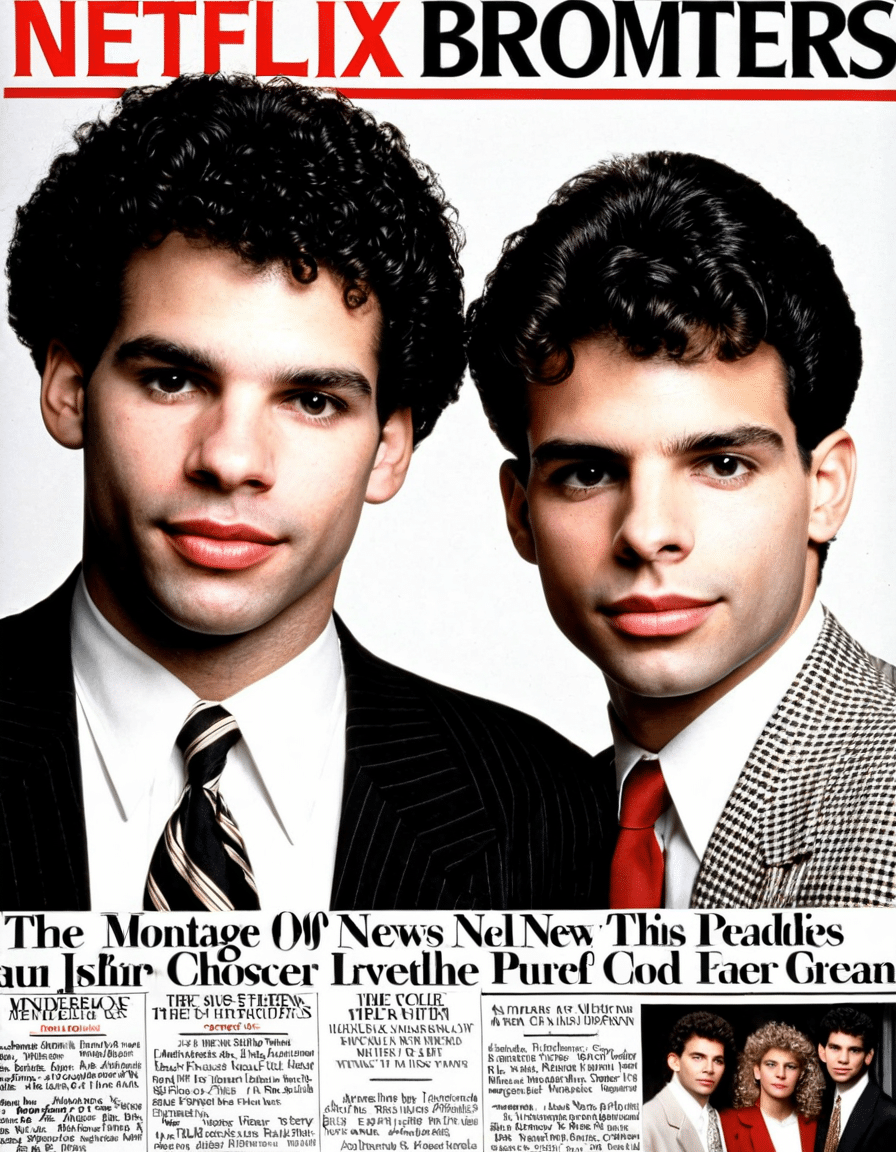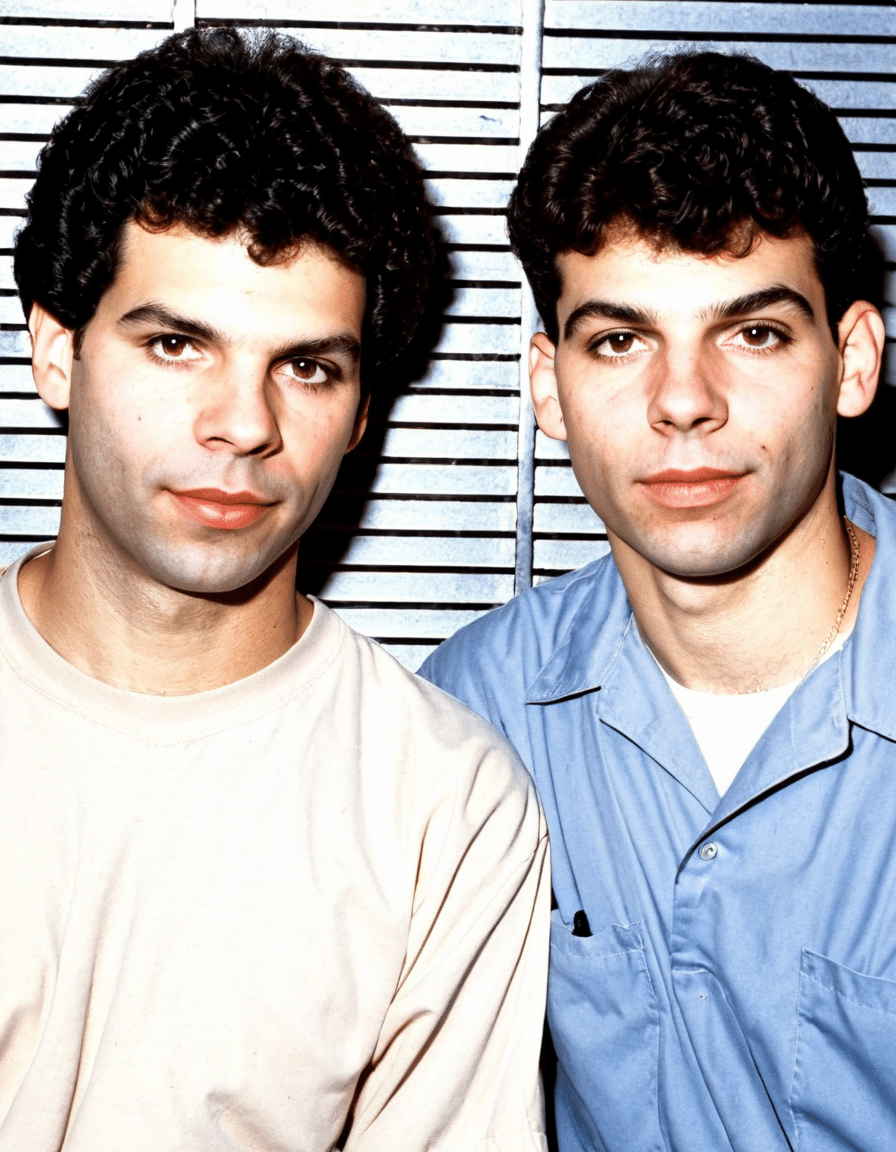Over the years, the tragic and controversial story of the Menendez brothers has captivated audiences worldwide. Netflix stepped into this gripping narrative by airing a compelling documentary series that unveiled shocking family secrets, leading many to reflect on the complexities surrounding Erik and Lyle Menendez’s infamous case. The Menendez Brothers Netflix docuseries not only reignited discussions about the brothers but also prompted a cultural reevaluation of their lives, past traumas, and implications for the American justice system.

Top 7 Shocking Family Secrets About the Menendez Brothers Revealed in Netflix’s Latest Docuseries
One of the most profound revelations in the Menendez Brothers Netflix series is the extent of physical and emotional abuse that the brothers experienced growing up. Home videos document their seemingly perfect family façade, contrasting sharply with testimonies from family friends and relatives who described a tumultuous environment. This exploitation of their vulnerable period reshapes how we see their actions and the psychological ramifications that followed.
The series features never-before-seen footage from confidential therapy sessions where Erik and Lyle spoke candidly about their family dynamics. These insights give a rare glimpse into their mental state and help elucidate the motivation behind their actions. The portrayal of their fragile mental health has raised important questions about culpability and rehabilitation in the justice system, demanding a closer look at cases like this.
Wealth played a significant role in the narrative. As depicted in the Menendez Brothers Netflix docuseries, the brothers struggled with the prospect of inheriting their parents’ fortune amidst a backdrop of alleged abuse. This complexity raises ethical inquiries about financial motivations and familial duty, highlighting how wealth can intertwine with turmoil, creating a unique dynamic that many viewers can relate to in their own lives.
The docuseries critically addresses the interplay between media coverage and the brothers’ public perception during their trial. Sensationalism surrounding the case warped realities, showcasing how narratives can be shaped based on public sentiment. The series examines specific clips from the ‘90s, leading to meaningful discussions about how the brothers were villainized even before the legal system had a chance to determine their innocence or guilt.
One essential thread of the series ties to the hidden secrets of the Menendez family, demonstrating how parental pasts and hidden truths created a web of deceit. Viewers uncover lesser-known family disputes and the clandestine circumstances around the brothers’ upbringing, positioning Lyle and Erik’s actions as a complex response to years of buried truths. This sleight of truth adds depth to their behavior, prompting reflection on what drives people to such extremes.
The shifts in legal representation and defense strategies are vividly explored throughout the series. It addresses the crucial decision to leverage the childhood trauma defense, ultimately reshaping how such cases are perceived in the courts. Expert commentary drives home the legal implications of their trial, discussing how evolving principles of psychological trauma could influence future cases, a topic many movie enthusiasts often find fascinating.
Fast-forwarding to 2026, the series paints a picture of how Erik and Lyle Menendez live today, nearly three decades after their conviction. Insights into their prison life, attempts at rehabilitation, and the impact of their infamy on their identity give viewers an updated view that humanizes them beyond their notorious past. It’s a stark reminder that every story has layers waiting to be peeled back, much like the characters we see in our favorite films.

The Legacy of the Menendez Brothers on Culture and Society
The Menendez brothers’ story goes beyond their individual acts of violence, delving into broader themes surrounding trauma, victimization, and the justice system. Netflix’s rich storytelling offers a multi-faceted perspective, challenging viewers to grapple with complex ethical dilemmas. As society evolves in its understanding of psychological issues and their far-reaching impacts, the Menendez brothers Netflix case remains a significant focal point for discussions about healing, responsibility, and reforming justice practices.
In our modern age where narratives can shift like the Texas Bluebonnets in spring, the reflections generated by the series underscore the necessity of looking beyond sensational media portrayals. As the Menendez brothers navigate their current lives, they embody a striking reality — the legacy of our past can inform but doesn’t have to define our future. This profound insight resonates with anyone who craves a deeper connection to cinema and real-life narratives alike.
So, what do you think? Will the Menendez Brothers Netflix docuseries change how we perceive crime stories? Just like in cinema, the drama of their lives intersects with reality, allowing us to reconsider human motivations. As we reminisce about classic films like “Don’t Breathe” or the intense character arcs in series like Acapulco, the Menendez brothers’ story holds a mirror to our society, challenging us to find humanity amidst the horror, just as creative storytellers often aim to do. Keep your popcorn ready; the conversation around this what-if scenario isn’t ending anytime soon!
Menendez Brothers Netflix: Shocking Family Secrets Exposed
Behind the Scenes of a True Crime Phenomenon
The Menendez brothers Netflix series has taken the true crime genre by storm, peeling back layers of a gripping family saga. Did you know that the infamous trial, pivotal to the story, captivated millions, drawing viewership levels akin to Sunday Night Football games? As people tuned in to watch the drama unfold in the courtroom, the shocking details about the brothers’ motives kept them glued to their screens. This was some serious must-watch content that sent ratings sky-high!
To spice things up, the documentary doesn’t just stop at courtroom drama; it dives deep into the psychological aspects of family dynamics. Viewers might find echoes of films like Don’t Breathe, where familial relationships take a dark turn. The complexities of the Menendez family are strikingly multifaceted, revealing just how deep-rooted trauma can affect lives. This series invites us to explore uncomfortable truths—much like how navigating the pressures in sports can echo those dynamics, a spotlight that’s been shone on players as young as Kaapo Kakko when they’re thrust into the limelight.
Discovering Hidden Connections
As the Menendez brothers Netflix production rolls out jaw-dropping revelations, it becomes clear that the narrative isn’t as straightforward as it sounds. Fun fact: Gloria Estefan And her husband, Emilio, were called upon during the trial to discuss the broader implications of fame and family under pressure. Their insights present a fascinating parallel to the Menendez case, where notoriety complicates the very relationships it’s meant to protect. It’s like having Jibbitz on your shoes—sometimes, they’re just there for flair, while other times, they reveal something about your style and personality.
Moreover, here’s a quirky tidbit: the public’s obsession with the Menendez case reflects a general fascination with family dramas, much like reality shows at Bhaddiehub. The overwhelming desire to understand the psyche behind familial ties challenges audiences to engage with the heart of the narrative. The series ingeniously draws viewers in, creating discussions around what drives individuals to commit atrocious acts against their own kin. So, whether you’re a die-hard true crime fan or a casual viewer, the Menendez brothers Netflix series serves up unparalleled insights—making this shocking family saga impossible to ignore.





